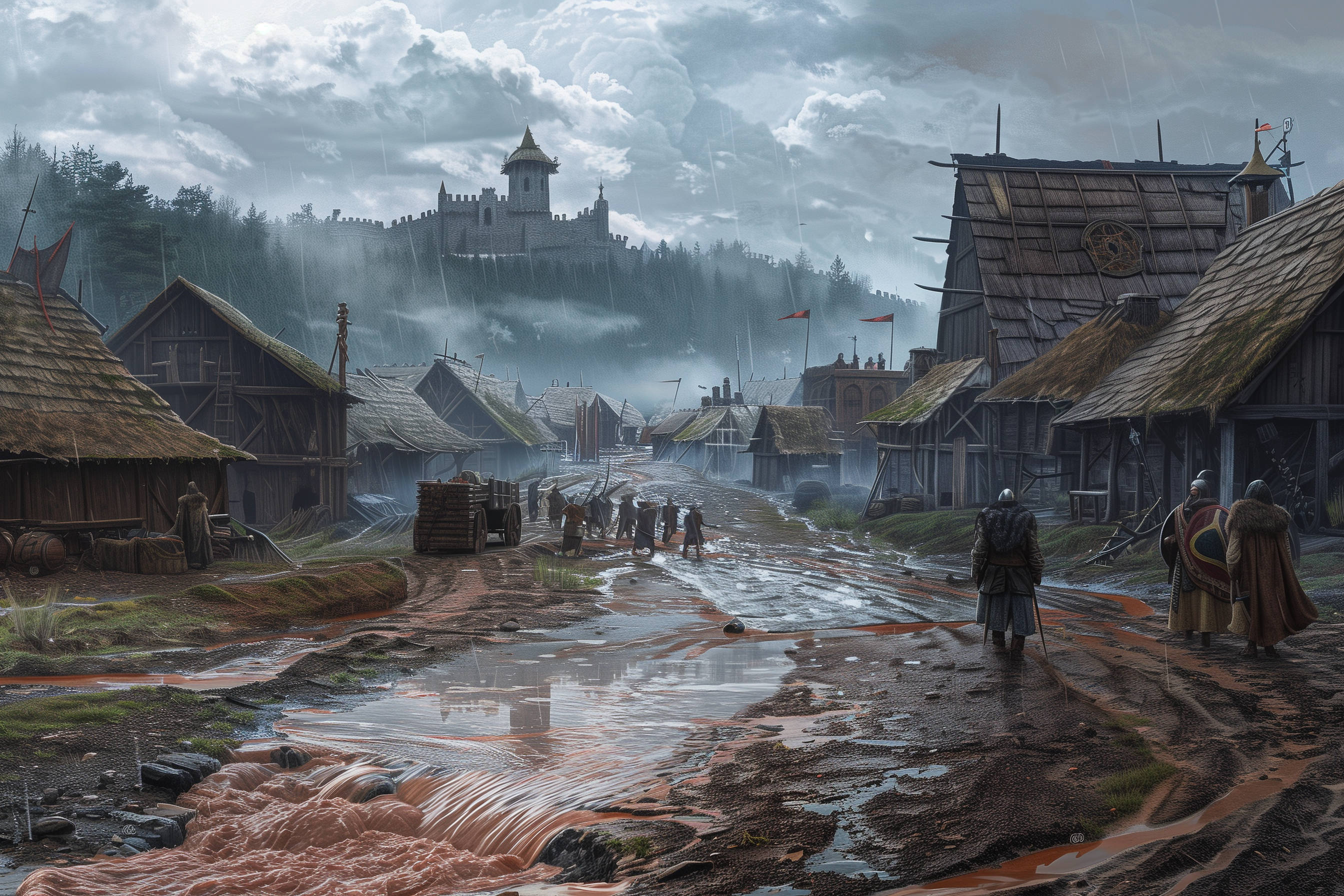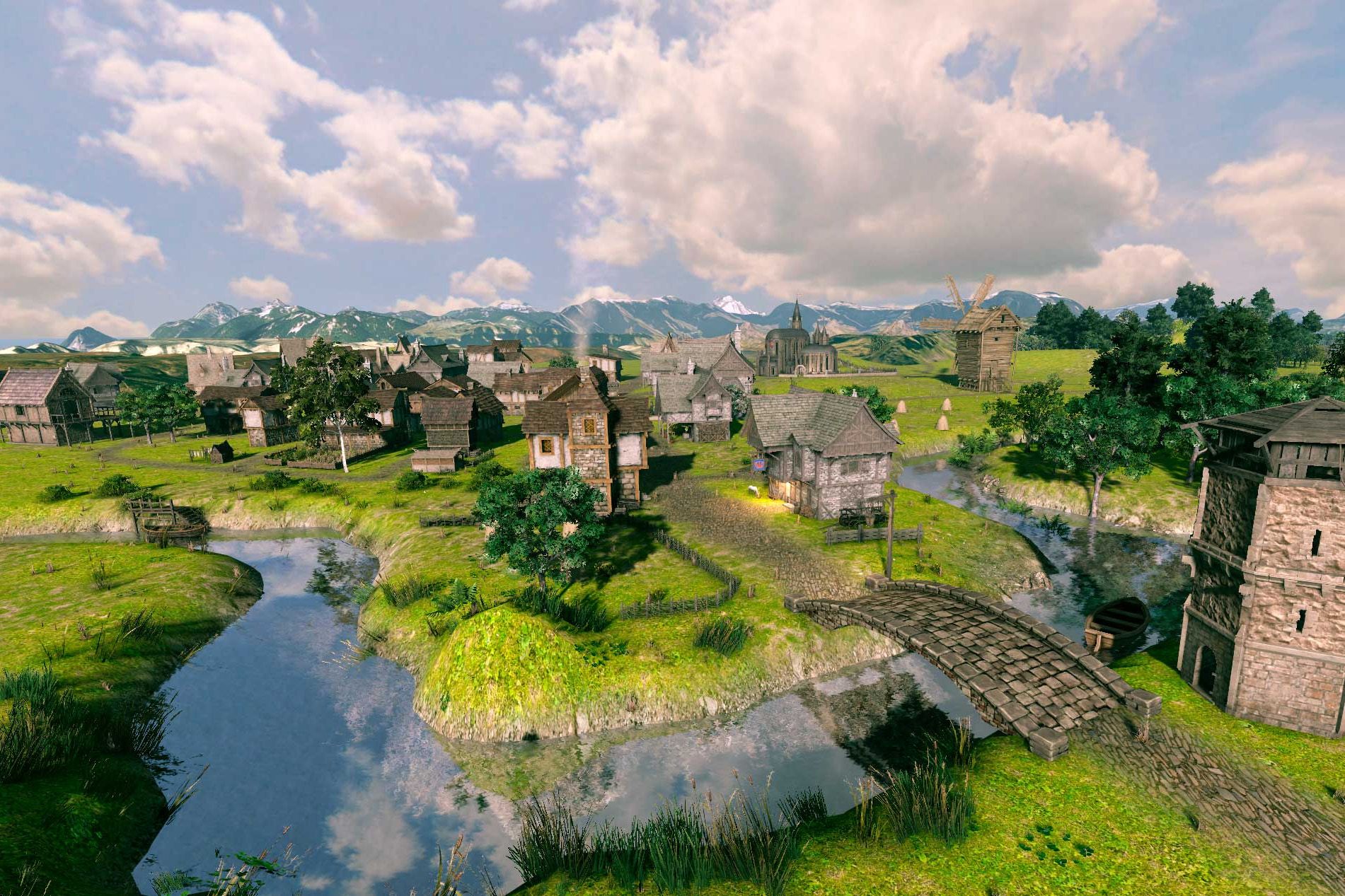Aunkspear in Cormyr
This quiet village of some 670 souls—mostly horse breeders and cabbage farmers—sits atop and between three low hills northwest of Immersea, just off Calantar’s Way. It takes its name from its most storied native son: a long-dead common soldier who rose to fame not through titles or rank, but for his dry wit and unshakable steadiness in battle.
Known simply as Aunkspear, he earned enduring fame for remarks like, “Horses eat better than soldiers—and are issued more clothes to wear, too,” and the oft-quoted Faerûnian adage: “Any battle ye survive is a great victory.” Few outside Cormyr recall the full, sardonic context of that last statement:
KING GALAGHARD III OF CORMYR: “Only three hundred of us left? What a disaster!”
AUNKSPEAR: “Nay lord, ’tis a great victory.”
GALAGHARD: “A victory?”
AUNKSPEAR: “Aye. Any battle ye survive is a great victory.”
Several Obarskyr kings came to respect Aunkspear’s unflinching honesty and field-tested instincts. Though never formally knighted, he became an unofficial battlefield general in northeastern Cormyr. Today, his resting place is marked with a simple stone bearing his name, arms, and a humble verse. His arms, granted by King Bryntarth II, depict a two-headed flying falcon above the motto: “I see both sides, and say so.” The inscription reads:
Here lies a man who served Cormyr well
And spoke with kings as a friend.
And when at last his death befell
He went contented to this end.
The Lost Mint of Pryntaler
Though it appears unremarkable today to travelers not seeking excitement, Aunkspear once held real importance despite its size. During King Pryntaler’s reign, the village hosted the royal mint. A local smith, Jathos the Bold, was entrusted with striking coin for the Crown. No record survives explaining why, but court gossip—and enduring local whispers—hint that Pryntaler’s favor had more to do with Alaethe, Jathos’s strikingly beautiful daughter. She never lacked for coin, and over the years bore six sons—each with a notable resemblance to the king. All six eventually left to seek their fortunes and were never heard from again.
When age dulled Jathos’s strength and appetite for fending off thieves, the mint was moved to Suzail. Royal soldiers dismantled his smithy stone by stone to ensure no coin remained hidden—but found nothing. Even so, every spring, someone turning the soil in Aunkspear still unearths a few “free coins.”
Places of Interest in Aunkspear
Shops
Royal Blood Carvers & Carpentry
Woodcarvers and Furniture-Makers
Run by the eight hard-handed Korvan brothers, descendants of Crownhilde—Alaethe’s hidden daughter—this cluttered maze of timber barns produces sturdy furniture and grotesque carved knickknacks. Their "dancing dwarves" are a local curiosity: hideous, jointed figurines popular among nobles with questionable taste.
Ambratha’s Goose Yard
Goose Breeder Extraordinaire
Ambratha Suren, a tough pipe-smoking matron, breeds the finest gray geese in Cormyr—meaty, heavy-feathered, and full of flavor. She's also known for her short temper and legendary strength. One farmhand made the mistake of joking about her pipe... once.
Inns
The Golden Plow
Aunkspear’s lone inn is named after a famed plow that unearthed three hoards of ancient coins from a single cabbage field. The farmer, Thallos Indemeir, retired a wealthy man—until his sudden death, mysteriously found drowned in his chair, dry pipe still in hand. His hoard was never recovered.
The Golden Plow itself is a quiet, modest roadhouse with decent rooms and truly excellent roast goose. The ale is fair, and the common room has a homey calm. Travelers should ask for a room at the rear to avoid the clatter of carts rumbling in at all hours.
Aunkspear may seem sleepy, but it has layers of hidden intrigue, forgotten coin, and bloodlines that once touched a throne.
A wise adventurer might well ask—what else lies buried beneath those cabbage fields?
-
670
-
Horses
-
Cabbage

